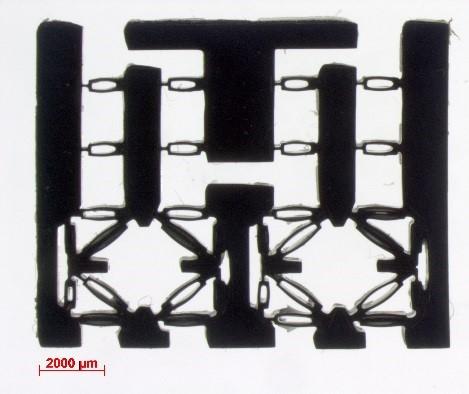While the computing industry quickly moved to electronic logic systems, mechanical logic offers several advantages, if it can successfully be readily scaled down to microscale. Chief among them, mechanical logic circuits will not require an electrical power source, thus computers built from them will be low power and have a negligible EM signature.
Early examples of computers were almost exclusively based on mechanical devices. Although electronic computers became dominant in the past 60 years, recent advancements in 3D micro-additive manufacturing technology provide new fabrication techniques for complex microstructures which have rekindled research interest in mechanical computations.
Recent advancements in additive manufacturing, also called 3D printing, allow precise placement of materials in three dimensions. LLNL researchers have invented mechanical logic gates based on flexures that can be integrated into the microstructure of a micro-architected material through 3D printing. The logic gates can be combined into circuits allowing complex logic operations to be performed within the structure of the material itself without electrical input.
LLNL's Center for Engineered Materials and Manufacturing has recently demonstrated the ability to control the microarchitecture of materials with feature sizes down to 10 microns. With these techniques, it may be possible to design mechanical logic circuits into the microstructure of a material creating so-called "material logic." Material logic will allow basic calculations to be performed by the material itself with no electrical power input and low signatures.
A key benefit of this mechanical computation approach is that such systems can be fabricated simultaneously as embedded parts of microarchitected metamaterials, offering an approach for designing new smart materials that are capable of interacting mechanically with its surrounding environment while processing and storing such information as digital data inside with no electric power.
Competing microscale mechanical logic gates are "single use." They do not allow for the circuit to be reset to allow further computation. LLNL's logic gates are resettable and operate without a clock.
Potential uses of Livermore's mechanical logic gates include: computing in harsh environments; mechanical logic systems, low electronic signature computation, electromagnetic pulse resistant computation, and smart/sentient materials.
LLNL has filed for patent protection covering its mechanical logic gates technology.

